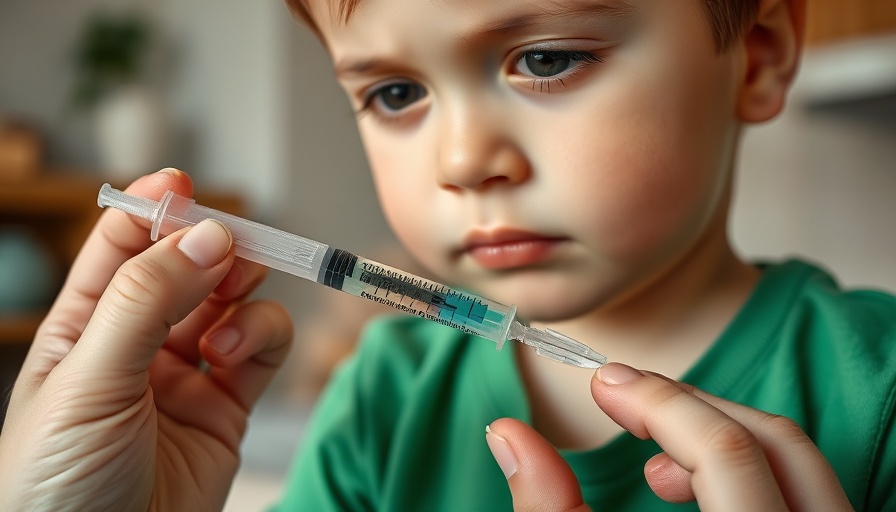
Concerns About RFK Jr.'s Influence on Public Health
The recent confirmation of Robert F. Kennedy Jr. as the head of the Department of Health and Human Services (HHS) has sent ripples through the public health community, raising significant alarms about the future of vaccination practices in the United States. Pediatrician Adam Ratner has expressed deep fears regarding Kennedy's history of anti-vaccine advocacy and its potential long-term consequences on public trust in vaccines.
The Shadow of Vaccine Skepticism
In an era where vaccine hesitancy has already been exacerbated by the COVID-19 pandemic, Kennedy's ascendancy to such a powerful role is unsettling. Ratner articulated his concerns regarding vaccine availability and the overarching public confidence in vaccinations, stating, "It is much easier to scare people than to unscare them." This sentiment underlines the precarious position that public health now finds itself in, as fear and misinformation loom large over scientific consensus.
Historical Patterns and Current Challenges
Historically, measles was once considered a disease of the past, largely due to the successful implementation of vaccination programs. However, recent years have seen a resurgence in cases, with significant outbreaks reported in cities like New York, where around 650 cases were documented in just 2018-2019. Such data illustrate the tangible consequences of straying from scientific guidance and eroding public trust in vaccines.
Economic Implications of Reduced Vaccination Rates
The economic considerations of Kennedy’s potential policies cannot be underestimated. According to a study by the Centers for Disease Control and Prevention (CDC), routine childhood vaccinations have historically saved over 1.1 million lives and generated $540 billion in healthcare cost savings over the past 30 years. Reduced vaccination rates not only threaten public health but also pose significant economic risks, potentially reversing these hard-won gains.
A Divide in Public Opinion
The politicization of vaccines, particularly during the Trump administration, has created a stark divide in public opinion. A Gallup poll highlighted that only 26% of Republicans view childhood vaccinations as "extremely important" compared to 63% of Democrats. This partisan split raises critical questions about how future health policies will be shaped under Kennedy’s leadership.
Healing Trust: The Path Forward
While Kennedy insists that he supports vaccine safety and would not remove vaccines from the market, many experts harbor doubts regarding his commitment to scientific evidence. Dr. Paul Offit, a prominent figure in vaccine education, characterized Kennedy's confirmation as a “sad day for America’s children,” reflecting profound concerns about trust in public health.
The Light in the Shadows: Potential Focus on Nutrition
Despite his controversial stances, there lies a glimmer of hope in Kennedy’s inclination towards addressing issues related to food and nutrition. His proposed initiative, to "Make America Healthy Again," aims to address the public health crisis stemming from poor nutritional choices. However, experts like Dr. Dariush Mozaffarian worry that these positive intentions could be overshadowed by the dangerous anti-vaccine rhetoric that defines Kennedy's public persona.
Final Thoughts
The confirmation of Robert F. Kennedy Jr. as the head of HHS stirs a whirlwind of emotions—from concern over public health safety to economic implications—leaving health officials and the public pondering the future. As the vaccine conversation continues to unfold, the need for a resilient public health strategy has never been more urgent. Ultimately, trust in science and medicine hangs in the balance, prompting national dialogues that could redefine health policies for generations to come.
 Add Row
Add Row  Add
Add 




 Add Row
Add Row  Add
Add 

Write A Comment